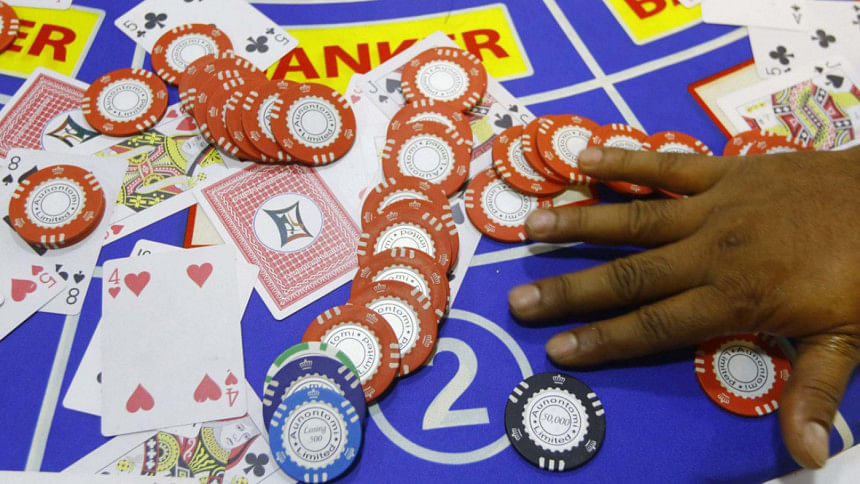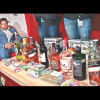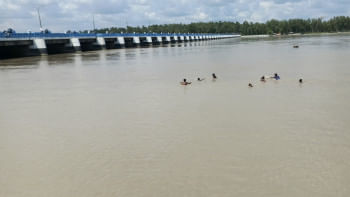Social media’s role in the online gambling surge

Technology has undoubtedly transformed societies, opened unprecedented doors of connectivity and innovation. Such advancements, however, have their dark sides, perhaps nowhere more glaringly than in economically vulnerable nations. Among the most critical concerns is the unabated growth of unregulated gambling sites on the internet. While countries such as Bangladesh grapple with infrastructural issues and political problems, the spread of such sites, driven by advanced digital promotion and lenient regulatory environments, has snowballed into a crisis with deep social, economic, and moral implications.
As of 2023, Bangladeshi authorities had actively blocked many international gambling sites like 1xBet, Bet365, and Mostbet. But political disruption following mass protests in late 2024 opened the door for a new generation of home-grown sites for gambling that are local in focus but global in reach. These hyper-local sites, often promoted via Facebook ads, target local communities with vernacular content and culturally tailored schemes. In contrast with their international counterparts, such sites operate in administrative grey areas, leveraging fractured enforcement to fly under the radar. For instance, ads for sites like BK33 and TK999—in some cases posing as "investment opportunities" or "games of skill" rather than gambling sites—clog social media feeds, leveraging the lack of digital literacy of many users.
What is noteworthy about such websites is their adoption of new technologies to instil trust. AI-made deepfakes of celebrities or popular cricketers pitch schemes, and AI voiceovers mimicking influential public leaders lend credibility. Worse is, kids and teens in poor households are hired as operators, making gambling popular among their peers. Such tactics exploit socioeconomic despair, and websites provide instant economic salvation in terms of fast loans for people already bruised by the economy due to inflation and unemployment.
The prime targets are low-income groups, particularly youths aged 18–30 years, who comprise over 60 percent of the population in Bangladesh. For many, gambling is a catastrophic spiral: losses trigger further betting in a bid to recoup money, compounding debt and depression. The social cost is huge—families disintegrate over money disputes, while students drop out to chase mirage profits.
Aside from individual bankruptcy, such sites threaten the national economy. Most are fronts for cross-border criminal syndicates, draining foreign exchange reserves through e-money laundering. Bangladesh Financial Intelligence Unit (BFIU) in its 2021-22 Annual Report revealed that around $0.59 million was transferred to a Malaysia-based company from Bangladesh in six months for online game coins. By 2024, the Criminal Investigation Department (CID) had approximated that Tk 260 crore was transacted through 1xbet in a year, while Tk 245 crore was traded through Bet365, Tk 230 crore through Mostbet, Tk 140 crore through Bet Winner and Tk 133 crore through Betbuzz. Such outflow tightens already strained dollar reserves, widening trade deficits while weakening the currency.
Bangladesh's main law for combating gambling on the internet, the Cyber Security Act, 2023 (earlier the Digital Security Act), is ill-suited for this crisis. The law is aimed at e-money payments, not broad crimes like false advertising or solicitation of minors. Officials are still in catch-up mode, shutting sites down once fraud is detected, as new sites open up daily. Experts contend that specialised laws, such as an Online Gambling Control Act, are necessary so that platform activities are criminalised, there is surveillance of transactions, and social media sites are held accountable for disseminating illicit advertisements.
Combating this epidemic involves action on multiple fronts. Governments, initially, must coordinate with technology companies to algorithmically detect and suspend gambling content. Meta, the parent company of Facebook, has worked with India and Nigeria on gambling advert bans; such deals are also needed soon for Bangladesh. Payment gateways like Bkash and Nagad must strengthen due diligence underwriting, suspending accounts related to gambling activity. Finally, social consciousness campaigns—led by influencers as well as at schools—can dissipate myths about "risk-free" online gaming, and the extent of the consequences. There should also be support groups for gambling addicts. Unchecked, online gambling will reinforce poverty, destabilise the economy, as well as erode social trust. For countries like Bangladesh, in which digital adoption is outpacing its bandwidth for regulation, the choice is evident: modernise or incur irretrievable damage.
K.M. Arshad is an undergraduate student of the Department of Economics at the University of Dhaka.
Views expressed in this article are the author's own.
Follow The Daily Star Opinion on Facebook for the latest opinions, commentaries, and analyses by experts and professionals. To contribute your article or letter to The Daily Star Opinion, see our guidelines for submission.

 For all latest news, follow The Daily Star's Google News channel.
For all latest news, follow The Daily Star's Google News channel. 










Comments